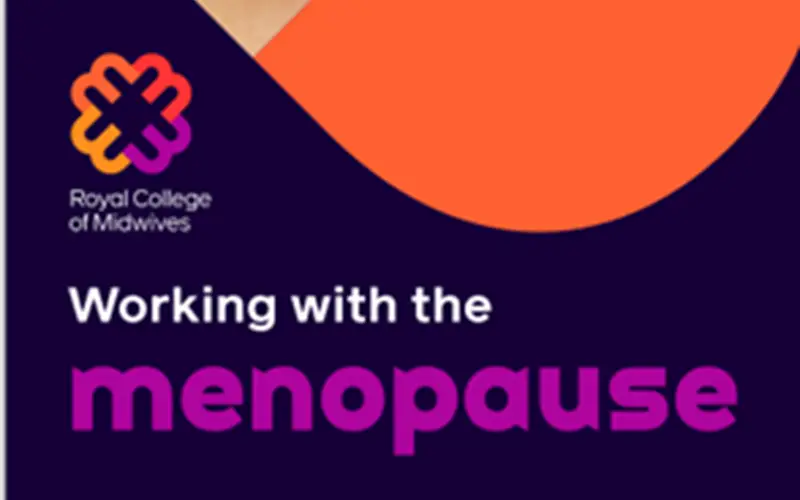Support from employers for maternity staff going through the menopause is ‘appallingly neglected’ and urgent improvements are needed says the Royal College of Midwives (RCM). The call comes as the RCM publishes guidance today for maternity staff and employers on working with the menopause on World Menopause Day.
A survey of RCM members last year showed that most of those that asked for menopause support at work did not get the help they needed. Over two thirds that responded said they asked their employer for help but got none. The response rate was small, but the RCM says this is simply a sign that staff are often not aware they can get help, and employers are not going out to staff to offer support, even when staff ask for it.
Alice Sorby, Director for Employment Relations at the RCM, said: “This is a sadly and appallingly neglected area that is having a profound effect on the lives of thousands and thousands of midwives and maternity support workers and their NHS colleagues. Yet too often it is treated as something to joke about. Too many employers are not only failing to help staff going through the menopause, but also are worryingly not even aware that they should be doing so.
“It is vital that anyone who is struggling with menopausal symptoms is given support, advice and suitable adjustments to their work and workplace. All employers have a legal duty to do this, but it is also the right thing to do. Staff who are not supported in the right way also cannot deliver the best care for women, babies, and their families. This is as much about the quality of care as it is about caring for and valuing staff. No woman should have to suffer this in silence, which far too many are doing right now.”
All women will experience the menopause at some point in their lives with around four fifths experiencing noticeable symptoms. For most, it begins between the ages of 45 and 55, and in the UK the average age to start the menopause is 51. Many women will go through the menopause earlier in life with around one in 100 women experiencing it before the age of 40. According to the Chartered Institute of Personnel and Development, six in every 10 women experiencing symptoms say it has a negative impact on their work. Not everyone who experiences the menopause is a woman. Trans, non-binary, and intersex people can all go through it.
The RCM guidance outlines how to recognise the mental and physical signs and symptoms of the menopause, such as poor concentration, tiredness, and memory problems. All of these can have a significant impact on a woman’s job performance says the RCM. It also details the legal role of employers and offers tips and advice to help them support staff adversely affected by the menopause.
The RCM’s menopause publication can be read at working-with-the-menopause_guide.pdf (rcm.org.uk).
For more information on World menopause day see World Menopause Day – International Menopause Society (imsociety.org).
See also c4u-menopause-article_2019-update.pdf (rcm.org.uk).
See also a webinar on working with the menopause at Menopause (rcm.org.uk).
See also Working with the menopause (rcm.org.uk).


